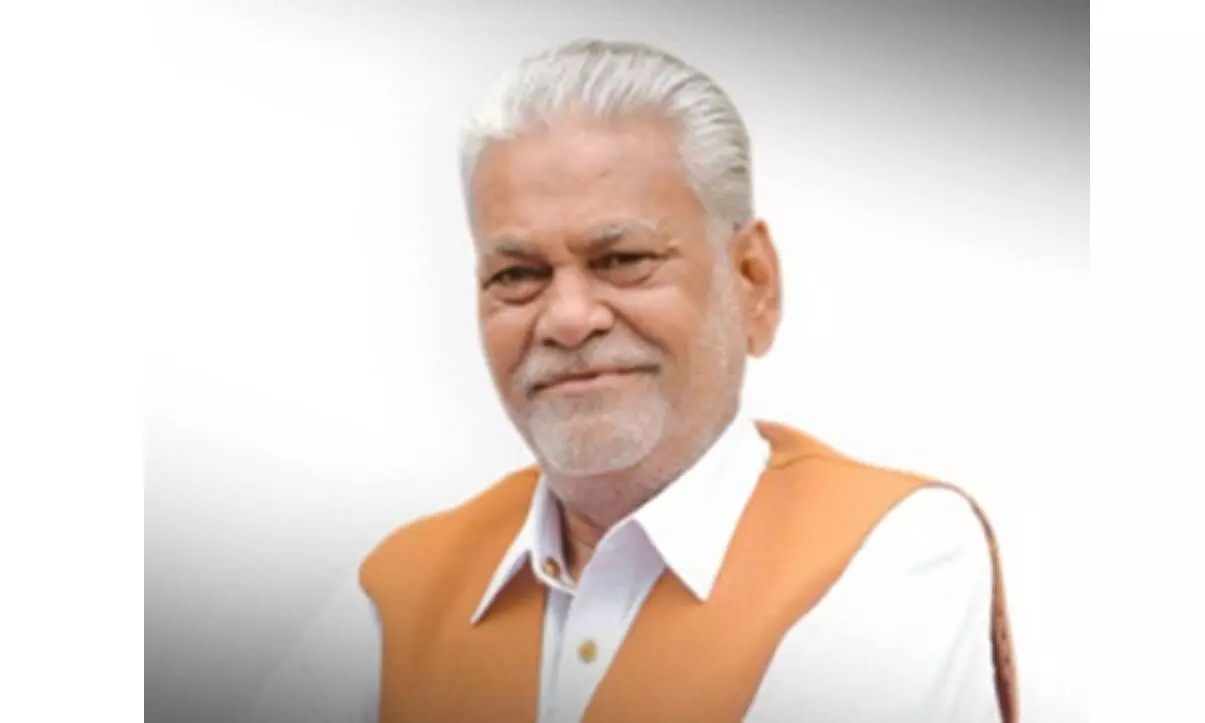Indian govt stepped up investment for fisheries sector since 2015: Parshottam Rupala
Union Minister for Fisheries Parshottam Rupala on Tuesday said the government has stepped up its investment for the fisheries sector since 2015 and the fish production has increased manifold.
image for illustrative purpose

Mamallapuram (Tamil Nadu), Oct 17 Union Minister for Fisheries Parshottam Rupala on Tuesday said the government has stepped up its investment for the fisheries sector since 2015 and the fish production has increased manifold.
Inaugurating the International Conclave on Mainstreaming Climate Change into International Fisheries Governance and Strengthening of Fisheries Management Measures in the Indo-Pacific Region here, Rupala said climate change will impact agriculture, fisheries and food security.
Organised by the Food and Agriculture Organisation of the United Nations (FAO) in collaboration with the Department of Fisheries, Government of India, and the Bay of Bengal Programme Inter-Governmental Organisation (BOBP-IGO), the conclave seeks to develop guidelines for climate resilient fisheries management and formulate strategies for the integration of climate change into international fisheries governance.
He said since 2015, the central government has substantially stepped-up public investments in the fisheries sector to the tune of Rs 38,572 crore.
With India being the second largest aquaculture producer and third largest fish producer in the world, he said seafood exports have more than doubled in the last nine years with record exports of Rs 63,969 crore ($8.09 billion) last fiscal.
He also said the shrimp exports more than doubled in the last nine years with exports of Rs 43,135 crore ($5.48 billion) during 2022-23
India’s fish production increased from mere 0.75 million tons in 1950-51 to a record 17.4 million tons (provisional) in 2022-23, a 23-fold increase. The success of inland aquaculture is spectacular. Fish production from inland aquaculture increased from 0.21 million tons in 1950-51 to 13.13 million tons in 2022-23, Rupala said.
According to him, during the last nine years, an estimated 61.9 lakh employment and livelihood opportunities have been generated under various schemes.
Approximately six lakh fisher families annually are provided with livelihood and nutritional support during fishing ban/lean period.
Thirty three lakh fishermen have been insured under Group Accident Insurance Scheme (GAIS) in FY 2022-23 and one lakh transponders are being installed for monitoring, controlling and surveillance of marine fishing vessels/boats in sea, Rupala said.
He said to offer livelihood opportunities in the seaweed sector, the government has initiated action for a Multipurpose seaweed park (integrated aquapark) in Tamil Nadu worth Rs.1.27 billion.
He also invited the delegates and the participants to the upcoming first edition of Global Fisheries Conference 2023 (GFC- 2023) from 21st - 22nd November in Ahmedabad, Gujarat on the occasion of World Fisheries Day.
Delegates from 18 countries, including the US, Japan, Italy, China, France, Ireland, Sri Lanka, Bangladesh are attending the conference.
Earlier speaking at the conclave, the FAO representative to India, Takayuki Hagiwara said FAO and India have been working together to achieve the goals.
He said that aquatic foods serve a great deal in containing malnutrition and maintaining holistic health.
According to Dr. Piero Mannini, Senior Liaison Officer, FAO, Romeet many marine species have been displaced due to global warming phenomenon and the rise in sea level has affected coasts around the world.
Mannini said aquatic food contributes to a major extent to achieve food security and it is important to manage them effectively.


